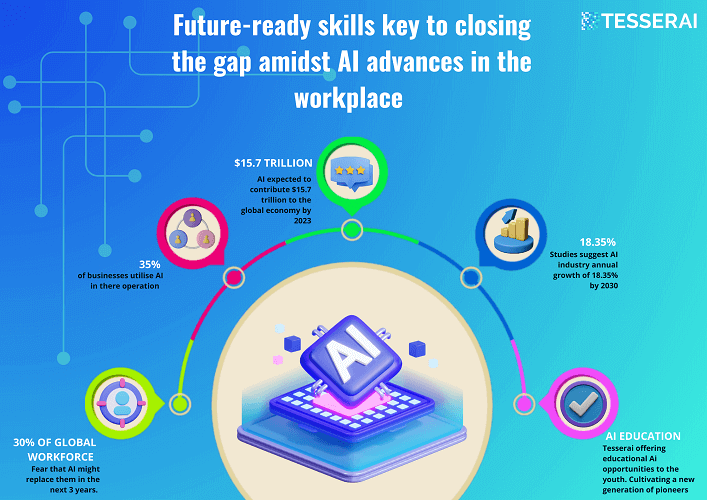As technologies such as artificial intelligence (AI) and others transform industries at an unprecedented pace, it has become imperative for South African workplaces to prioritise education and training initiatives to empower individuals with the skills necessary to thrive in the digital era, writes Varsha Ramesar, Head of Data: Tesserai, a Mettus company.
Innovative technologies such as AI, machine learning, big data and data analytics are flourishing across diverse sectors, from healthcare and banking, to retail and commerce, with no signs of slowing anytime soon.
Comparable to the invention of the wheel, the printing press, or the steam engine, AI is a once-in-a-generation advancement that will bring about fundamental changes to how the world will operate.
So much so that studies suggest that as many as 35% of businesses now use AI in their operations, with the technology estimated to have contributed as much as $15.7 trillion to the global economy in 2023.
AI has instilled a sense of trepidation among many professionals. Insights indicate that 30% of the global workforce fear that AI may replace them within the next three years. Others project that between 35% and45% of jobs in South Africa could be replaced by AI by 2030.
Despite these concerns about job security, AI is expected to create millions of new jobs and opportunities, highlighting the need to evolve in the rapidly progressing labour market. And, instead of shying away from the capabilities of the technology, it’s an opportunity for professionals to embrace its capabilities and enhance their job functions by learning and upskilling themselves to take advantage of the host of new opportunities.
To do so, professionals need to accelerate their competence in the skills of the future. These include digital literacy and an understanding of the fundamentals of digital technologies and concepts. Included in this is the need to evolve skills related to critical thinking to analyse complex problems; data literacy to learn how to interpret and work with data; and a mindset of continuous learning to stay abreast of industry trends, emerging technologies and advancements in AI.
While the adoption of AI and associated technologies is on the rise in South Africa, where studies suggest it is expected to grow at an annual growth rate of 18.35% between now and 20304, it is still considered low in the global context, and continues to face challenges in the development of relevant skills. A few of these challenges come as a result of educational gaps within higher education institutions, limited resources, and hardly any dedicated training programmes on acquiring AI competencies.
To tackle these issues effectively, it is essential to incorporate AI education into the national curriculum, prioritise upskilling programmes with a specific focus on AI, utilise digital platforms to enhance the accessibility of AI education, and encourage the development of public-private partnerships to support initiatives in AI education.
In response to this pressing demand and to enhance the career prospects of South Africa’s youth, Tesserai, in collaboration with Empire Partner Foundation, initiated its internship programmes in January this year. The multi-year project aims to tackle the country’s high unemployment rate, and offers educational opportunities to the country’s youth, with a vision of cultivating a new generation of pioneers in innovation and leadership.
Moreover, with the course spanning six to 12 months, candidates are provided with the opportunity to join the greater Mettus group on successful completion of the programme. To this end, the company anticipates upskilling as many as 100 candidates.
Simply put, AI is not going away. Avoiding it is like facing a future with the dimmer switch turned down – an environment that is difficult to navigate, where opportunities become less discernible, and progress appears less illuminated.
Embracing AI in the workplace, on the other hand, is like unleashing a productivity maestro – fine-tuning efficiency, inspiring innovation, and crafting a landscape where businesses and employees flourish. It’s an opportunity to make the seemingly impossible, possible.
Image Courtesy: Supplied
